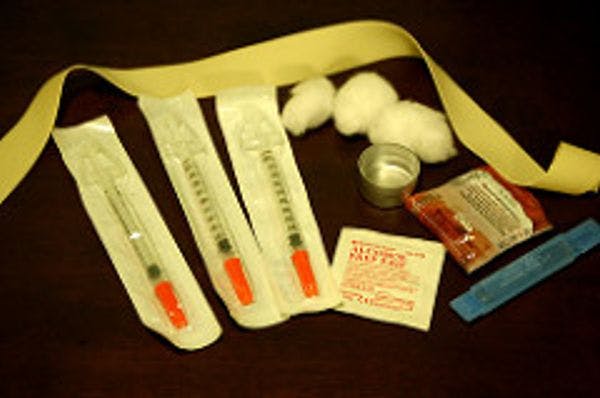Le meilleur moyen de fondamentalement venir en aide aux personnes touchées par des problèmes de drogue est de les aider à en faire usage en toute sécurité
Les affirmations écrasantes en faveur de centres d’injection supervisés devraient prévaloir sur les points de vue stigmatisants au sujet de l’usage de drogues injectables. Pour en savoir plus, en anglais, veuillez lire les informations ci-dessous.
Abonnez-vous à l'Alerte mensuelle de l'IDPC pour recevoir des informations relatives à la politique des drogues.
By Keri Blakinger
On Dec. 18, Congress passed a $1.1 trillion omnibus spending bill filled with numerous additions and addendums, including, somewhat surprisingly, a rider that might be really important to drug addicts. It restores the possibility of federal funding for needle exchange programs. For both drug users and those who advocate for them, this is a huge step—but there’s still more to be done.
The first ban on federal funding for needle exchanges was implemented back in the late 1980s. We’ve been relying on stigma to dictate our public health policies for almost three decades. In 2009, legislators briefly relented and lifted the ban, only to reinstate it with a spending bill in December 2011.
It’s well-documented that needle exchanges reduce HIV and hepatitis transmission rates among IV drug users. This 1998 study found that one needle exchange in Connecticut reduced the HIV infection rate among participants by 33%. Also, it’s worth noting that a 2000 study–conducted by the same two scientists—found that needle exchanges did not correlate with any increase in crime. In other words, they’re not making your neighborhood unsafe. And from a public health perspective, they’re actually making it safer.
Click here to read the full article.
Keep up-to-date with drug policy developments by subscribing to the IDPC Monthly Alert.
Thumbnail CC Todd Huffman
